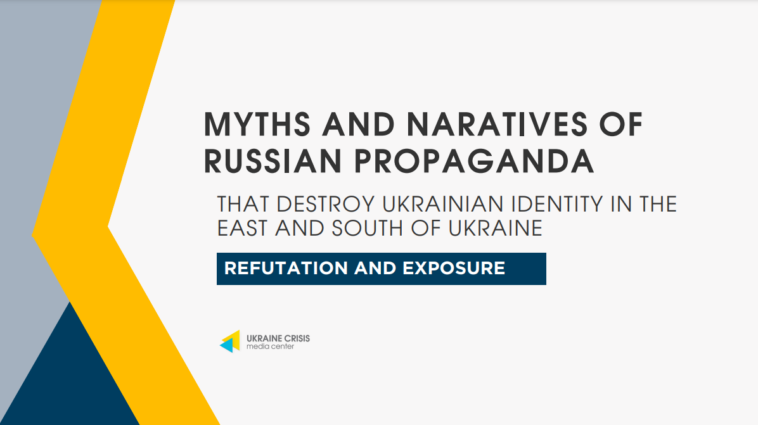The South and the East are not only the agricultural strength of Ukraine, its maritime traditions and the country’s center of industry. This is also the basis on which, first, the Moscow communist regime, and then the Russian propaganda formed its own myths and narratives.
This happened for decades and left its imprint on the minds of the older generation. As the events of 2014 and later 2022 showed, such a policy had only one goal – to sow people’s disbelief in their national identity.
Ukraine Crisis Media Center decided to analyze which myths were spread to a particular region, and to prove their failure. The result of this work was the study “Myths and narratives of Russian propaganda that destroy Ukrainian identity in the south and east of Ukraine. Debunking and exposure”.
The researchers focused on the Odesa, Mykolaiv, Zaporizhzhya, Dnipropetrovsk, Kherson, Donetsk, Luhansk, Kharkiv regions and the Autonomous Republic of Crimea.
In order to collect and systematize relevant material, the researchers interviewed local experts – historians, local lore specialists, journalists, librarians, public activists.
They were asked to answer the following questions:
- What are the most common versions of Russia’s and/or the USSR’s and/or the Russian Empire’s contribution to the development of the region?
- Who is considered the biggest contributor to the development of the region?
- In what period did the region experience the highest educational and cultural development?
- What collective or legendary image of local success does local history convey?
- Which pro-Moscow myths are the most persistent?
Debunking a Russian myth turned out to be not so difficult. It is enough just to use a scientific approach and have access to historical materials.
Ukraine Crisis Media Center is confident that the study “Myths and narratives of Russian propaganda that destroy Ukrainian identity in the south and east of Ukraine. Debunking and exposure” can become part of the educational material and contribute to studying the history of Ukraine and improving media literacy in the specified regions of Ukraine.
The research was carried out as part of the project “Strengthening information resilience in Ukraine” in partnership with the International Practitioners’ Partnership Network (Estonia) with the support of the European Union.



